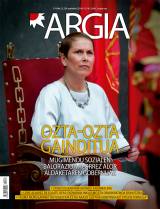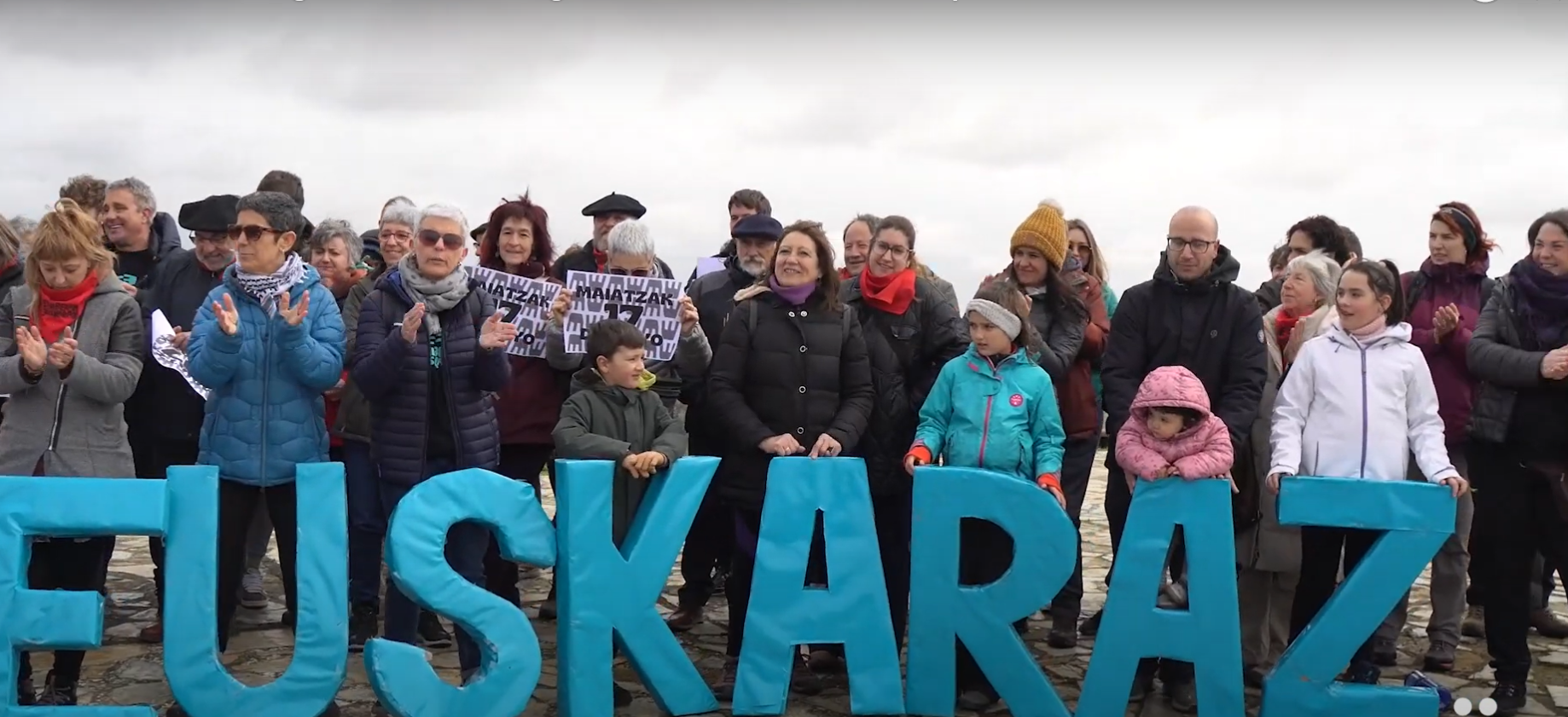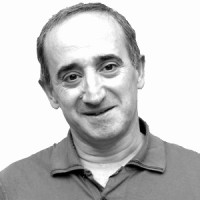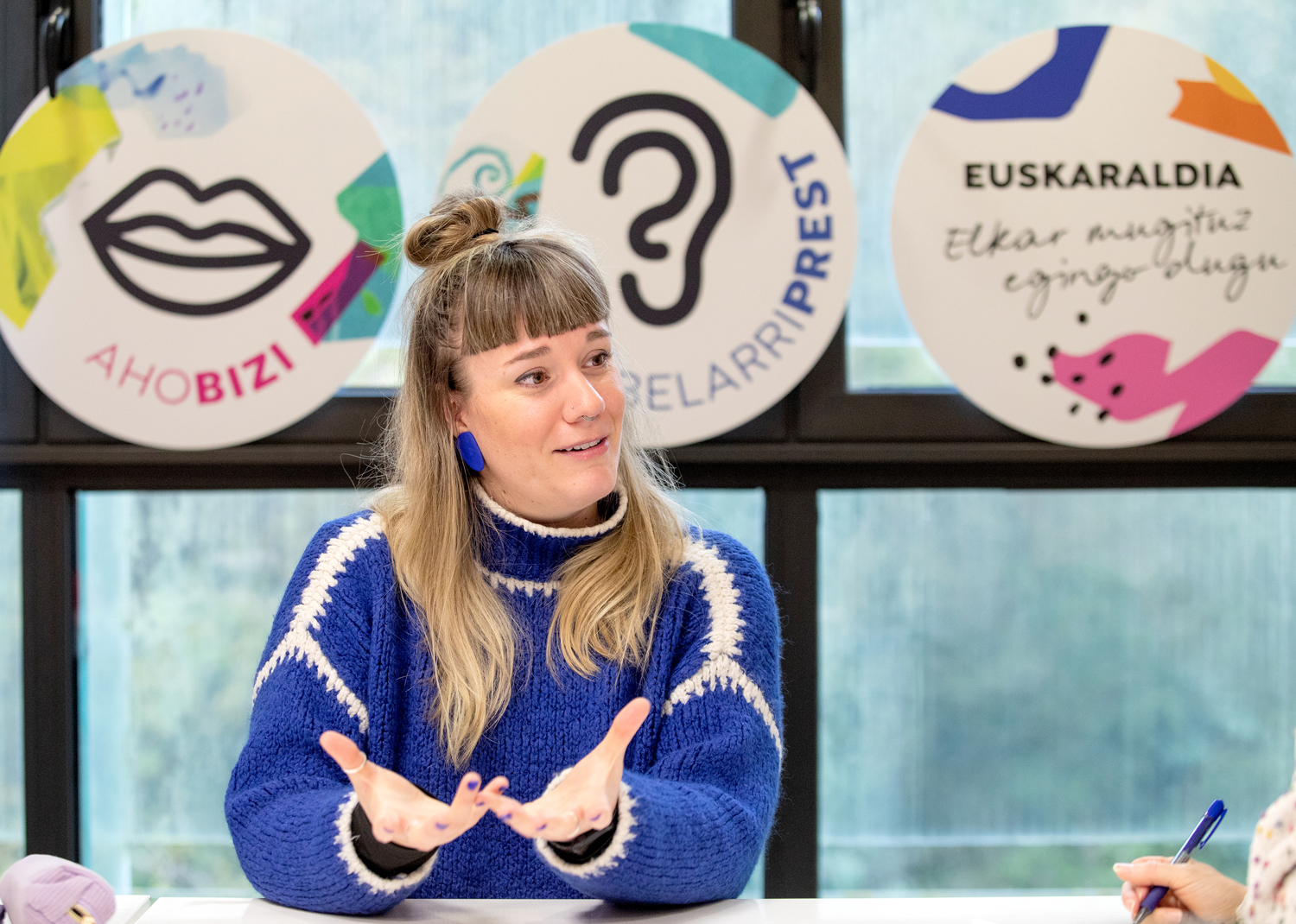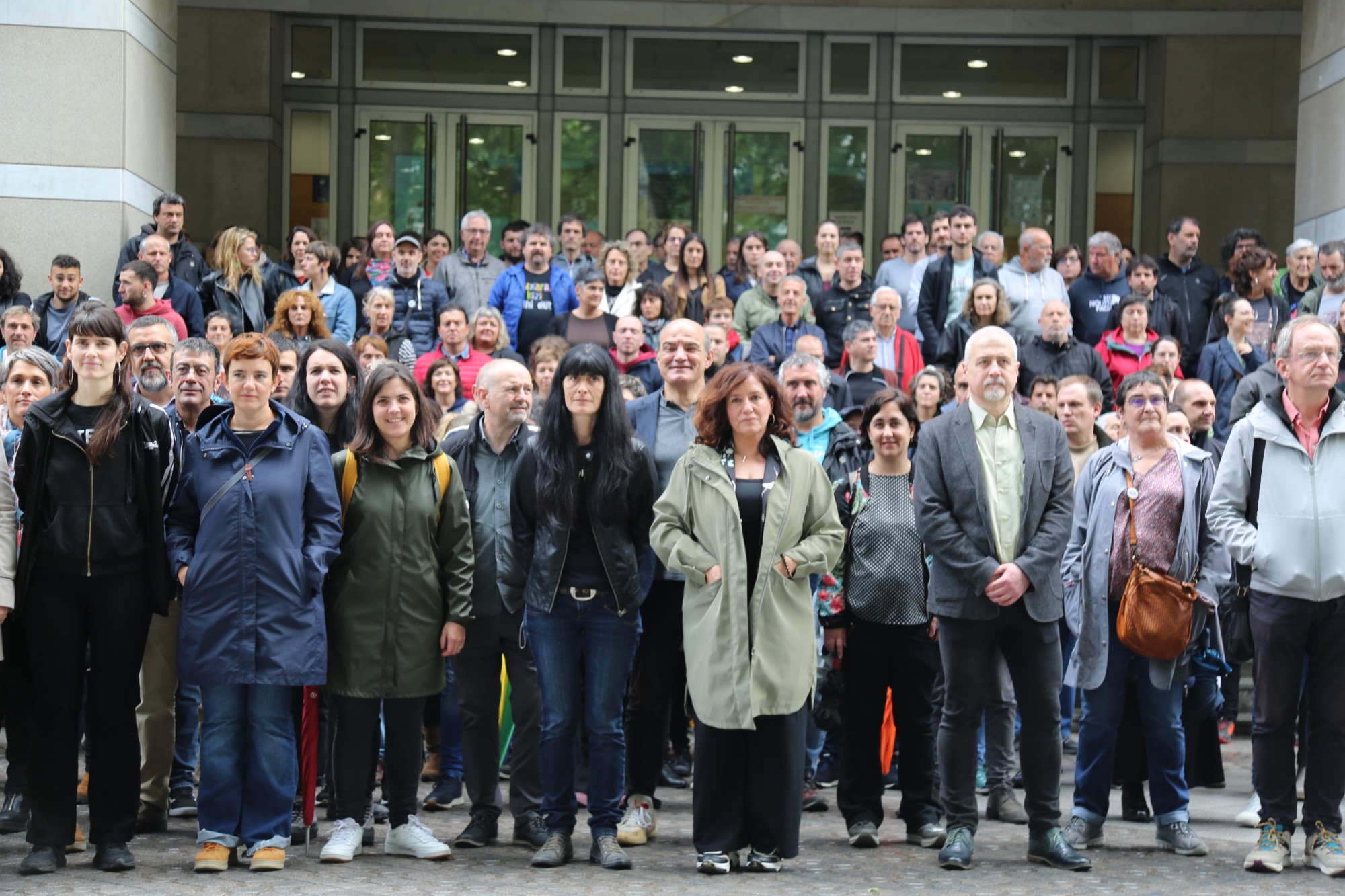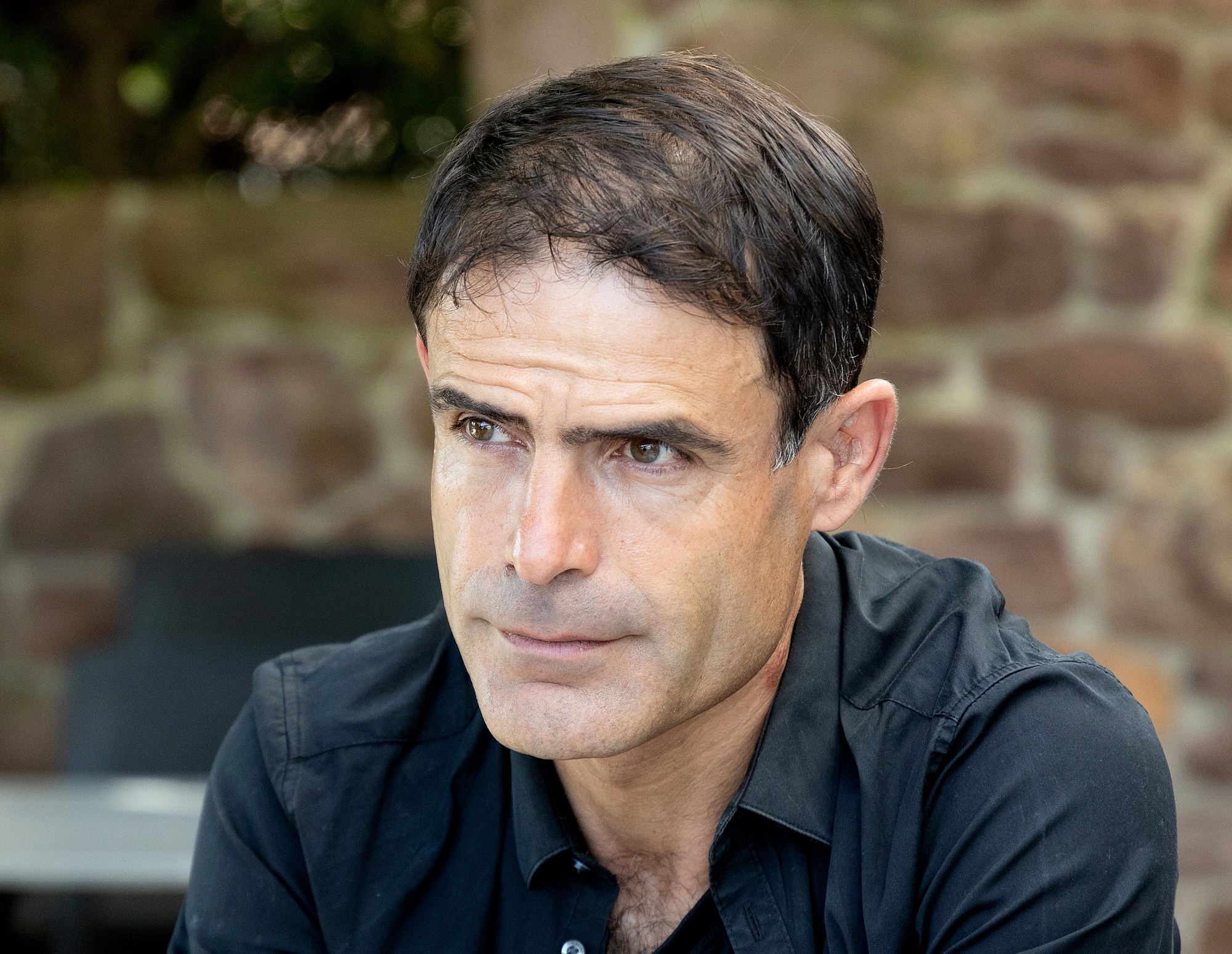This abnormal world of Euskera
- It can be the most striking statement we heard in the 3rd edition of the Days of Practice and Life: “We are very clear that we want to bring to an abnormal world the people we want to bring to the Basque world.” The philosopher and professor of the UPV Eduardo Apodaka was in charge of launching the AEK call to the Basque dynamizers and professors who met on November 11 in Bilbao.
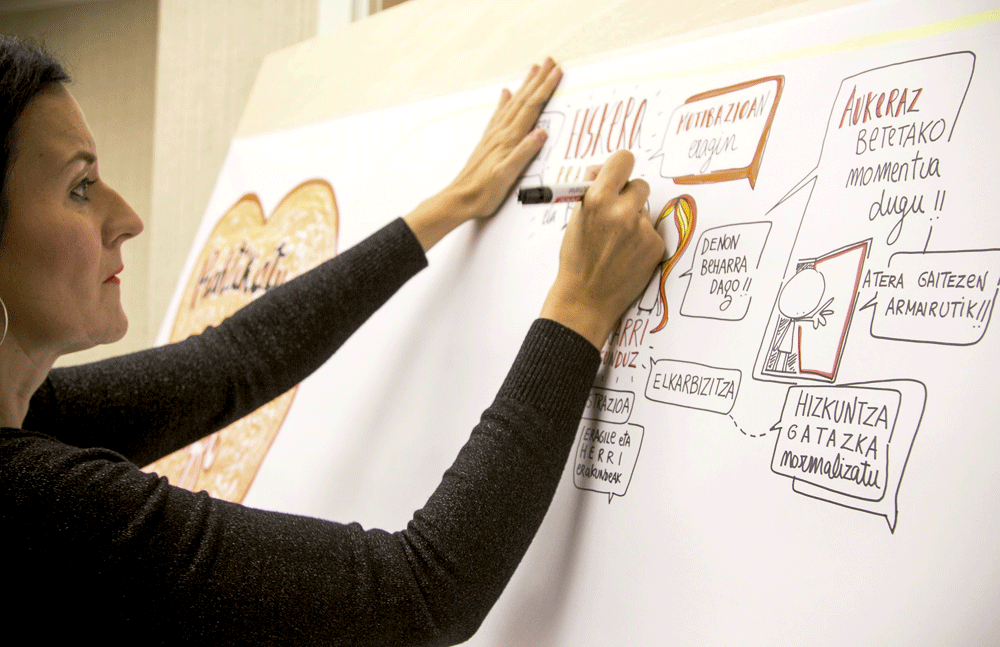
Along with Apodaka were Gemma Sangines Saiz, a psychologist and expert in TELP workshops; Mikel Urdangarin Montero, a professor, pedagogue and promoter of the Basque Project; Amaia Agirre Pinedo, founder of the company Coaching Factory. In fact, the organizers of the Days of Practice and Life wanted to work with the perspective of psychology, “seeking recipes to influence the use of Euskera”. In this way, from AEK they wanted to highlight the importance of the way to start speaking in Basque in the Castilian speaking areas, as well as the linguistic behaviors of each.
But what is the point: no speaker proposed specific recipes to the interlocutors, Berbalagun and dynamizers of the Basque country. They talked about transmitting positive emotions, about training, about social practice and about working on motivations with freedom and freedom. In fact, new Basque speakers need opportunities to work in Basque, to work the language together, and, if possible, to enjoy it.
For this reason, Apodaka stressed that “languages are reasonable activities”. We use language to coexist and hence the true meaning of language: necessity. That is why it is important to take into account the language in which we carry out each action: “We will remove the language we use in actions that make no sense and we will adhere to a language that makes full sense.” For example, “in the center of Bilbao there is no doubt that the language of all sense is Spanish, while in this area, if we do it in Basque, we will have to look for other senses and organize other practices. That is, we must also think about Euskera in reasonable practices”.
Guessing why
That is why we are putting a discursive overload on the Basque country. The lack of meaning “forces us to work the speeches specifically, we have to guess why we have to do it,” Apodaka said. We seek “meaning” over and over again. In part, this philosophy is based on the opportunities and campaigns organized by people to people to speak in Basque: “Preparing special situations, inventing special practices, meeting in special environments or environments… We have to find it and practice it, as tennis or jogging practice, so we have to find time, a moment, a special atmosphere, a special group of people for it”.
This makes sense, of course, as “languages are social activities. We cannot forget that languages are well integrated into our daily activities and that we learn them with them; language is nothing that is outside our lives, it is in our lives and it makes us.”
But with Euskera, and in general with minority languages, what happens is that “we have to seek meaning to social actions every time, because what we do is not normal”. In Apodaka’s words, “we are very clear that we want to bring the Basque world into an abnormal world, into an anomalous world.” That is why the overload discourse is important: “We’ll have to be explaining what we do over and over again.”
But that doesn’t have to be an obstacle, according to Apodaka. Moreover, “needs arise from opportunities” and “although at first we will have to do simulations, if we have to simulate a normality without problems, full of comfort and meaning, we will arrive by repetition to what we want to achieve”. That is, “naturalness will come from social training, the result of this collective learning”.
Gemma Sangines even referred to repeated activities: “When speaking in Basque, the myths fall and the greatest reinforcement is to have the opportunity to speak.” Also Sangines, in line with Apodaka, acknowledged that “we are inventing arguments to speak in Basque”, but in his opinion, “it is not always necessary: we do not have to explain what we like,” he concluded.
In short, as Mikel Urdangarin has pointed out, “we have to achieve activation to achieve action”, always “on the basis of attainable objectives”. That's what EusLider workshops do. The workshops aimed at adolescents seek that “young people realize for themselves the opportunity to practice Euskera”. And for this it is necessary, according to Urdangarin, “to feel able to achieve it, that the action is not risky and that the actions will generate positive emotions”. In this sense, Amaia Agirre Pinedo explained that the achievement has to be specific, measurable, affordable, realistic and materializable over time. In fact, Basque adolescents know that they are “rare” in Castilian contexts. According to Apodaka, “they know they do something weird and they don’t want to be weird. So they start to speak in Spanish, they start to do it normally, because they want the resources, the prizes, the joys and the pleasures that that normality gives them. Euskera is our anomalous singularity”.
The illustrator Miren Artola (Visual thinker & Graphic Facilitator) summarized what the speakers had to say to the Basque dynamizers, as, as she explained, she drew the dialogue between the action and the proposal as a center. And the 90 attendees of the days of Practice and Life witnessed it. In the opinion of Edorta López Rey, coordinator of AEK’s practice activities, “despite the fact that last year’s sessions were more concrete, this year we wanted to work on the perspective of psychology, as the dynamizers themselves demanded.”
The Berbalagun groups participate 6,500 people every week and “we take advantage of these days to invigorate all of them and reflect on social practices”.
You may not know who Donald Berwick is, or why I mention him in the title of the article. The same is true, it is evident, for most of those who are participating in the current Health Pact. They don’t know what Berwick’s Triple Objective is, much less the Quadruple... [+]
Is it important to use a language correctly? To what extent is it so necessary to master grammar or to have a broad vocabulary? I’ve always heard the importance of language, but after thinking about it, I came to a conclusion. Thinking often involves this; reaching some... [+]
Adolescents and young people, throughout their academic career, will receive guidance on everything and the profession for studies that will help them more than once. They should be offered guidance, as they are often full of doubts whenever they need to make important... [+]
Maiatzaren 17an Erriberako lehenengo Euskararen Eguna eginen da Arguedasen, sortu berri den eta eskualdeko hamaika elkarte eta eragile biltzen dituen Erriberan Euskaraz sareak antolatuta
Ansorena´tar Joseba Eneko.
Edonori orto zer den galdetuz gero, goizaldea erantzungo, D´Artagnanen mosketero laguna edo ipurtzuloa, agian. Baina orto- aurrizkiak zuzen adierazten du eta maiz erabiltzen dugu: ortodoxia, ortopedia, ortodontzia... Orduan (datorrena... [+]
We have had to endure another attack on our language by the Department of Education of the Government of Navarre; we have been forced to make an anti-Basque change in the PAI program. In recent years, by law, new Model D schools have had to introduce the PAI program and have had... [+]
"Ask for your turn and we'll join you," the willing and cheerful announcer who speaks from the studios tells the young correspondent who walks through the streets of Bilbao. The presenter immediately addressed the audience. "In the meantime, we are going to Pamplona..." They opened... [+]
Aberri Eguna elkarrekin ospatzeko xedez sortu zen Euskal Herria Batera plataforma. Aurten, ikusgarri bat eskainiko dute apirilaren 11n, Manex Fuchs antzerkilariaren, Lorea Agirre idazlearen eta Martxel Rodriguez dantzariaren eskutik.









